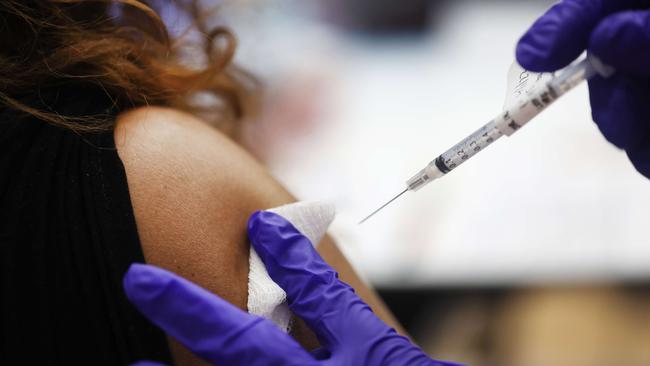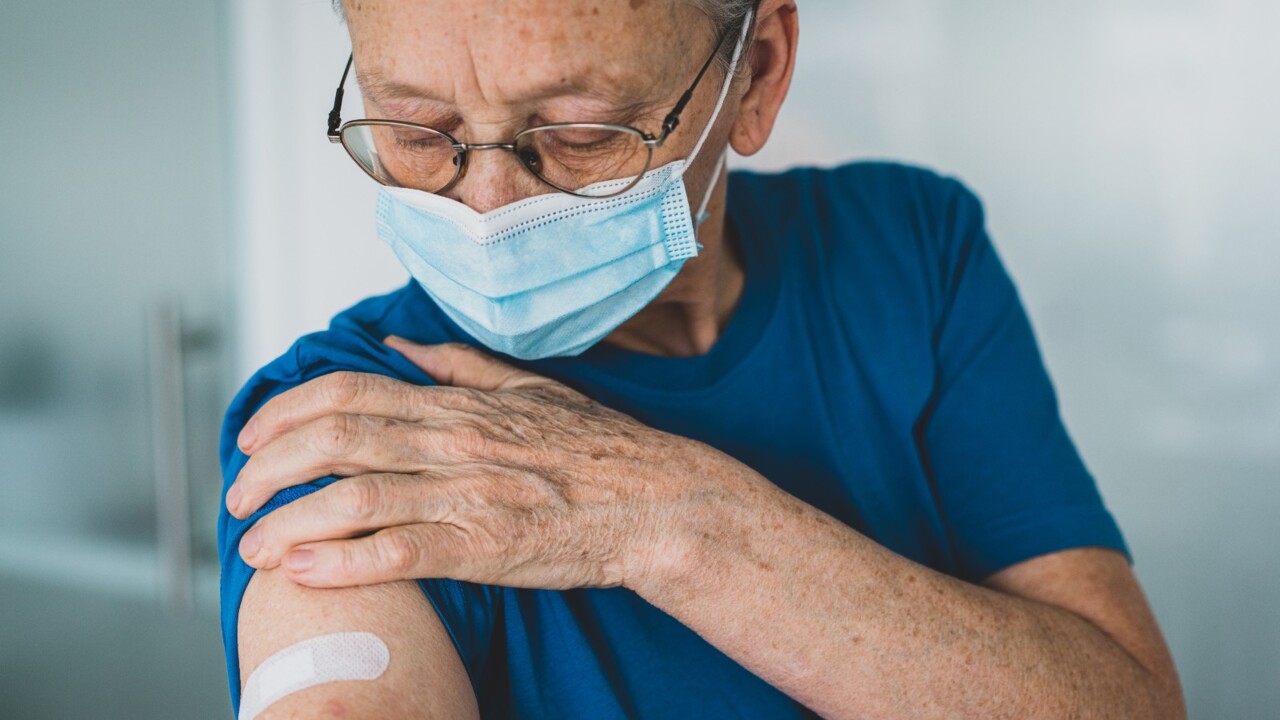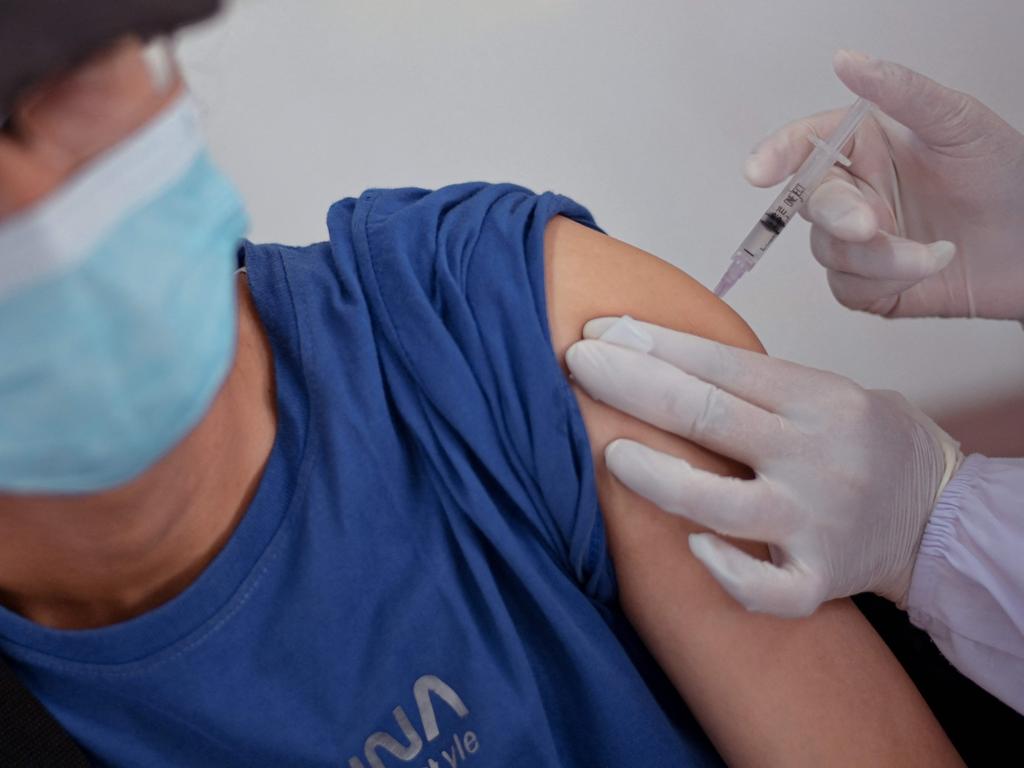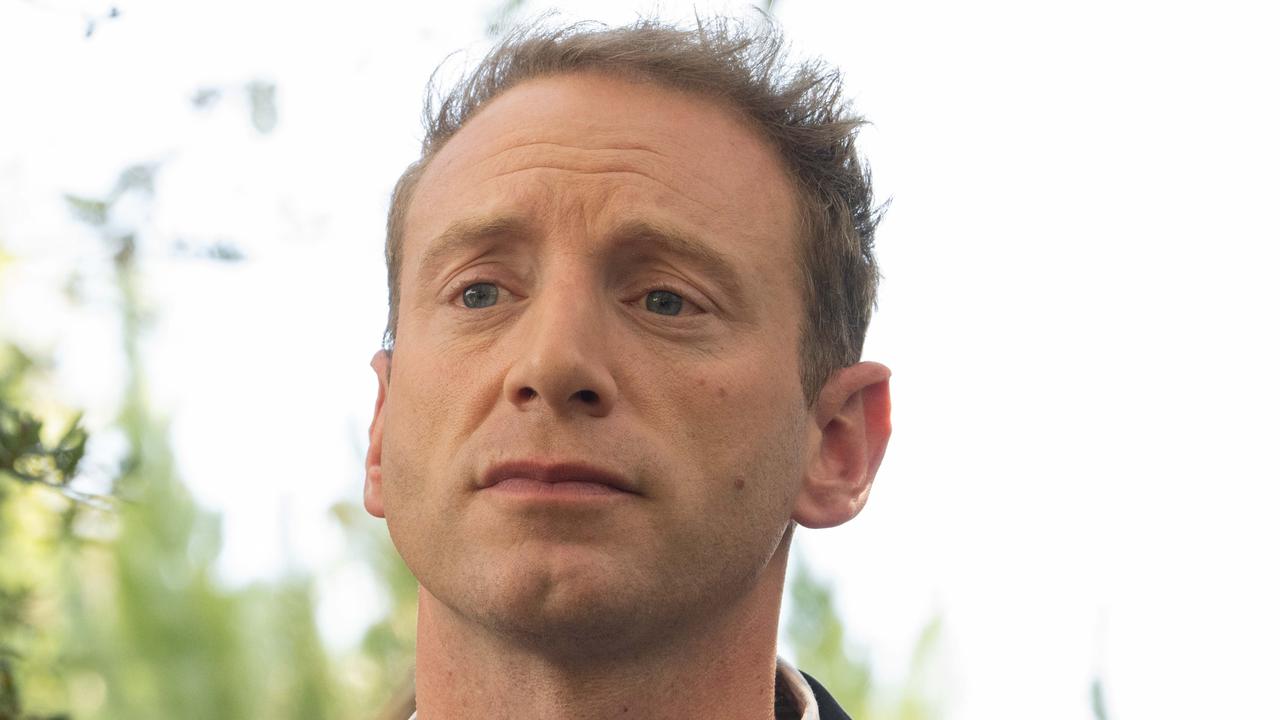Covid-19 booster shots work to reduce the death rate
States with higher booster vaccination rates experienced lower death rates from Covid-19, new analysis shows, as top heath chiefs urge those holding out to get their third shot immediately.

States with higher booster vaccination rates have experienced markedly lower death rates from Covid-19, new analysis shows, as top heath chiefs urge those holding out to get their third shot immediately.
Only 58.1 per cent of eligible people have had a third shot in Queensland, 64.1 per cent in NSW, 68.1 per cent in Victoria and 68.4 per cent in South Australia.
Western Australia has the highest booster rate in the country at 80.2 per cent, and despite experiencing the highest number of cases per head of population since February it has had the lowest death rate from Covid-19.
Analysis by The Weekend Australian shows WA has recorded 38,976 cases per 100,000 people since February 8, the last date NSW had a higher percentage of people aged 16 or more who had had three vaccine doses than WA. This compared with 23,122 cases per 100,000 people in NSW.
However, WA has only had 310 people die of Covid-19 during that time, compared with 1744 people in NSW. Victoria has recorded 1447 deaths, Queensland 818 and SA 339. On a per-capita basis, the three states with the highest booster vaccination rates had the lowest death rates. WA’s death rate of 15 per 100,000 people is almost half that of NSW and Victoria, which have recorded 27 per 100,000. The ACT had the lowest death rate of 11 per 100,000 people, while Tasmania was second on 14 per 100,000.
A similar relationship between high booster rates and lower death rates can be seen in the ACT, which has a third-dose rate of 79.3 per cent and has had only 38 deaths out of 102,495 cases.
Deakin University epidemiologist Catherine Bennett said the apparent correlation between booster doses and death rates was a demonstration of the significant extra protection against severe disease and death conferred by a third shot. “I certainly think it’s one of the things we expect to see,” Professor Bennett said. “The vaccine efficacy against severe illness is reasonably striking.”
It is increasingly clear that a three-dose vaccination regimen is likely to confer sufficient immunity for the population until next winter, with experts saying four doses will probably be unnecessary. The Australian Technical Advisory Group on Immunisation has mandated fourth doses for those aged over 65, residents of aged care or disability care facilities, people with severe immunocompromise, and Aboriginal and Torres Strait Islander people aged 50 years or above.
A Victorian parliamentary inquiry this week heard that mandating a fourth dose for the general population would be unnecessary because of the high levels of immunity in the population.
It has become clear that although antibody levels may drop, the immunity conferred by T-cells holds up well over time in terms of protection from severe disease.
There is little international data on the efficacy of a fourth vaccine dose, but one study out of Israel found that although a fourth dose of the Pfizer-BioNTech vaccine offers protection against serious illness for at least six weeks after the shot, protection against infection wanes after just four weeks.

The World Health Organisation recently reviewed seven studies and found there was a short-term benefit of an additional booster dose in those over 60 or with immunocompromising conditions, but data suggested the benefit of a fourth shot in younger people was “minimal”.
Terry Nolan, head of the vaccine and immunisation research group at the Doherty Institute and a former ATAGI chairman, said fourth doses were appropriate for the elderly but did not confer much benefit on the young.
“That’s where the protection against severe disease becomes marginal because the younger you are, the less likely you are to get severe illness,” he said.
“The general principle of age and immune compromise being major determinants of severe outcomes for those who are infected still holds true, and the logic to protect those with an additional booster dose now is strong.”
University of Sydney virologist and vaccine expert Tony Cunningham said it was likely that strong protection against severe disease, particularly in younger people, would last at least 12 months after a third dose even though antibodies generated by the vaccine dropped over time.
“You need much less antibody for protection from severe illness,” he said. “T-cells seem to last better than antibodies, and this means you get longer protection against severe disease. We’re seeing T-cells lasting 12 months, so it may be that you get protection against severe disease for a year.”
Moderna has recently announced results for its trials of a vaccine specifically directed at the Omicron strain, and experts said it was likely that future vaccines would be needed, perhaps yearly and perhaps combined with a flu vaccine, as new strains emerge.







To join the conversation, please log in. Don't have an account? Register
Join the conversation, you are commenting as Logout